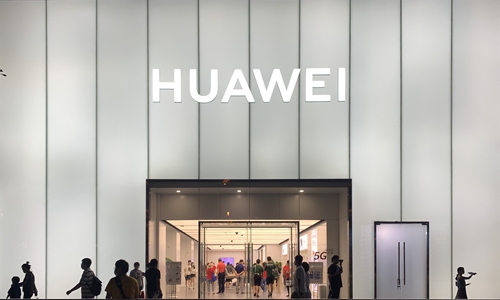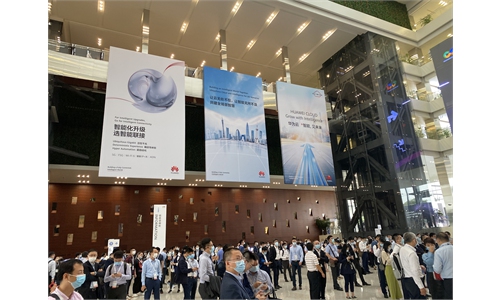COMMENTS / EXPERT ASSESSMENT
Huawei Thailand project signals start of US-free industry chain

Illustration: Tang Tengfei/GT
As the world enters the 5G era, related cooperation and competition has been under spotlight across the world. With the US-led anti-China clique relentlessly trying to strangle the development of Chinese 5G frontrunner Huawei, the company recently launched a new innovation center in Thailand alongside its investment scale-down from Australia, portending the rise of the global industrial chains that are free from the US influence, and both the tech firms and the emerging markets will benefit from the new trend.
Huawei Thailand plans to invest 475 million baht ($15 million) to establish a 5G ecosystem innovation center in Thailand to research 5G use cases and incubate 100 local small and medium-sized enterprises and startups for three years, according to a report by local news outlet the Bangkok Post.
"The 5G ecosystem innovation center in Thailand is the first such launch in ASEAN," the report said, citing Abel Deng, chief executive of Huawei Thailand.
Meanwhile, Huawei had terminated A$100 million ($72.3 million) of R&D investments in Australia since it was banned from the country's 5G construction in 2018, and plans to continue cutting jobs and investments in the country, Reuters reported.
Multinationals like Huawei operate and invest across different countries and regions, and such dynamic business adjustments are normal practices based on the changes of international political environment and the development of local markets.
Yet it revealed a critical trend that the construction of US-free global industrial chains has emerged with an intention of non-US firms to shun escalating irrational crackdown from the US and some of its allies.
The US has been bullying Chinese firms with even state power, and tirelessly trying to cajole or threaten its allies to turn against Huawei. Unable to form a united front even among the Five Eyes, the US-led anti-China clique has no capacity to wipe out all opportunities of the firms either. The Chinese firms and other non-US firms being bullied by Washington should be more far-sighted and aware that markets of the US-led clique account for only one part of the whole international market.
Instead, emerging markets such as the Southeast countries are accumulating potential amid the reconstruction trend of global value chains. Fairly seizing the opportunity could bring interests and brighter developing prospects for both Huawei-like firms and local markets.
In order to maintain hegemony, the Trump administration has been promoting the anti-globalization trend, casting shadow on the development of foreign firms and other countries. Under such circumstances, Huawei's investment adjustment offers an example for similar firms to adapt to the increasingly complex environment and actively roll out measures to diversify risks and tackle with ill-intended attacks.
Whereas certain countries that are recklessly upholding the anti-globalization war cry and refusing to cooperate with advanced technologies are highly likely to see their opportunities slipping away and growth slowing down.
Though the future is tough, Chinese firms with accumulated talent and technology are encouraged to go abroad and seek joint growth with overseas partners. Meanwhile, these firms are still in an early stage of development overseas, with plenty of difficulties and risks on the way. And related Chinese authorities are expected to shore up guidance and facilitation to help the firms grow more smoothly and protect their lawful rights and interests especially when being attacked by foreign governments.
The article was compiled based on an interview with Bao Jianyun, professor of the School of International Studies and director of the Center for International Political Economy Studies at Renmin University of China. bizopinion@globaltimes.com.cn



